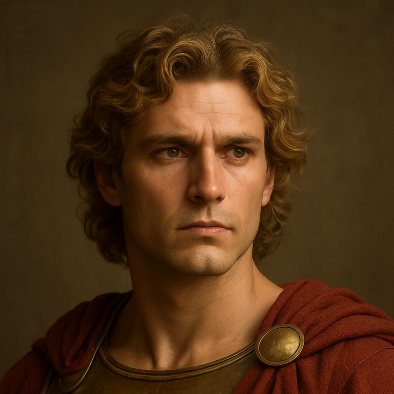Introduction
One of the most famous people in global history is Alexander the Great (356–323 BC). He was known for his unequaled military skill and his ability to establish enormous empires. He became king of Macedonia when he was 20 and went on to develop one of the largest empires in the ancient world. Alexander’s campaigns changed the course of world history, bringing Hellenistic culture from Greece to Egypt and then to India.
This page talks about Alexander the Great’s life, battles, accomplishments, leadership, and legacy, which still have an effect on the globe today.
Table of Content
- Introduction
- Early Life of Alexander the Great
- Rise to Power
- The Most Important Battles and Conquests of Alexander
- Military Intelligence and Planning
- The Vast Empire of Alexander the Great
- Personal Life and Character
- Death of Alexander the Great (323 BC)
- Alexander the Great’s legacy
- Conclusion

Early Life of Alexander the Great
Alexander the Great was born in 356 BC in Pella, the capital of the Kingdom of Macedonia. He was the son of Queen Olympias and King Philip II of Macedonia. His royal pedigree gave him a strong base for leadership, but his education made him one of the smartest people of his time.
- Aristotle taught Alexander science, politics, literature, and philosophy.
- Physical training: He also learned how to fight, hunt, and ride a horse.
- Ambition from a young age: Alexander was brave and a leader. A well-known anecdote says that he was able to tame the untamed horse Bucephalus, which no one else could do.
It was apparent by the time Alexander was a teenager that he was going to be outstanding.
Rise to Power
Alexander became king at the age of 20 after King Philip II was killed in 336 BC. A lot of people didn’t think he could be a good ruler, but Alexander rapidly proved them wrong.
- He put down uprisings in Greece and restored Macedonian rule.
- He started his war against the Persian Empire, which was the strongest empire in the world at the time, in 334 BC.
This was the start of one of the most successful military careers in history
The Most Important Battles and Conquests of Alexander
1. The Battle of Granicus (334 BC)
This was Alexander’s first big fight with the Persians. His brave leadership and new strategies led to a clear victory that opened up Asia Minor to his troops.
2. The Battle of Issus (333 BC)
Alexander led a lesser army against the Persian king Darius III, but he utilized smart tactics to beat the much bigger Persian army. Darius ran away, leaving his family behind.
3. The Siege of Tyre (332 BC)
This was one of Alexander’s most famous battles. Tyre was a defended island city, but Alexander built a bridge across the water and took it after a long siege, showcasing his determination and military inventiveness.
4. The conquest of Egypt in 332 BC
People in Egypt saw Alexander as a liberator and built the city of Alexandria, which became a hub of trade and study for hundreds of years.
5. The Battle of Gaugamela (331 BC)
Alexander faced Darius III once more, and he emerged victorious this time. He employed clever strategies to win, even though he was outnumbered, and he effectively ended Persian power.
6. The campaign in India (326 BC)
At the Battle of Hydaspes, Alexander entered India and fought King Porus. Alexander’s troops won even though the conditions were terrible. Alexander was impressed by Porus and let him stay in charge as his buddy.
Military Intelligence and Planning
People remember Alexander the Great not merely for winning battles but also for changing the way wars are fought.
- Phalanx Formation: Made the Macedonian phalanx with long spears (sarissas) work perfectly.
- Speed and Mobility: Stressing cavalry and quick movements to get around adversaries.
- Psychological Warfare: Used fear and reputation as strong weapons.
- Adaptability: Changed plans based on the terrain, the enemy’s strength, and the situation.
He was almost unbeatable in battle since he was brave and smart at the same time.
The Vast Empire of Alexander the Great
Alexander the Great’s giant dominion at its height, Alexander’s dominion stretched from Greece to Egypt, Persia, and India. At the time, this was the biggest empire in the world.
- Spread Greek ideals, language, and culture (Hellenism).
- The empire built more than 20 cities called Alexandria.
- He encouraged the sharing of civilizations between the East and the West.
His kingdom linked many cultures, making it possible for people to engage with one another in the future.
Personal Life and Character
People mostly think of Alexander as a conqueror, yet he had a complicated personality:
- Courage: Always fought on the front lines.
- Charisma: Made his men devoted to him.
- Ambition: Wanted to conquer the whole globe.
- Flaws: Could be cruel, as shown by the destruction of Thebes and the execution of close friends.
Alexander married Roxana, a Bactrian princess, and then additional spouses to make political ties stronger.
Death of Alexander the Great (323 BC)
Alexander died in Babylon in 323 BC while he was only 32 years old. The reasons for his death are still not clear. Some ideas are that he had a fever, was poisoned, or was sick with malaria or typhoid.
His sudden death left his empire without a clear heir, so his generals, known as the Diadochi, split it up.
Alexander the Great’s legacy
Alexander’s impact is felt long after he died:
- Hellenistic Civilization: His victories disseminated Greek culture and mixed it with Eastern customs.
- Military Legacy: Military schools all around the world still study his plans.
- Cultural Impact: Cities like Alexandria were places where people could learn, like the famous Library of Alexandria.
- Global Vision: Wanted to bring the East and West together and encourage cultural exchange.
Historians often argue about whether Alexander was a cruel conqueror or a great leader. But there is no denying that he had a big effect on history.
Conclusion: Why Alexander the Great Matters Today
Alexander the Great’s story is more than just a tale of conquest; it is a lesson in leadership, vision, and ambition. His ability to inspire, innovate, and achieve against overwhelming odds makes him one of the most influential figures in world history.
Even today, more than two thousand years later, Alexander the Great remains a symbol of courage, strategy, and global influence. His name continues to inspire leaders, scholars, and dreamers across the world.
